Questioner: Sadhguru, I wanted to know that when we are silent, still we feel that mind chattering, which always bothers us. And our thought always shifts back to past and future imaginations, which will not be any of the output. How to get rid of it? Sadhguru: There’s a whole lot of thought about this thoughtlessness. Thoughtlessness, no mind, these kinds of terms have been propagated all over the place, and these terms have been badly misunderstood and made into all kinds of things, and people are striving “how to stop my mind.” It took millions of years of evolution to get a mind of this kind of capability. Hmm? Isn’t it? Millions of years of the tremendous amount of nature’s work that today you have a mind of this kind of scope. And now, you want to stop it. [Chuckles] Why is it that you want to stop it? If your mind was constantly producing absolute pleasantness for you, would you think about how to stop this mind? Would you? No. It’s producing a lot of unpleasantness, and that’s why you’re thinking of how to stop the mind. This is the first thing, wherever you go in the world, this has gone so much into people’s minds; if you tell them, “You meditate,” they say, “But Sadhguru, I’m not able to stop my mind.” I said, “That will happen only after you stop your kidneys, liver, heart… [Laughter] If you stop all these things, then the mind will also stop. Do you want it to stop?” “No.” Then why do you want the mind to stop? Why do you have such a horrible prejudice against the mind? You don’t mind if your heart is beating, you can meditate. You don’t mind if your liver is working, you can meditate. Your kidneys are functioning, you can meditate. If your brain functions, you can’t meditate. What is the problem? You seem to have something against intelligence, isn’t it? [Laughs] This is the conspiracy of the stupid against human intelligence, that to meditate means your brain must be frozen. No. You don’t have to freeze your brain. We were looking at this yesterday itself. We will initiate you into Shambhavi – it’s a simple process. There are many ways to do it, this is one simple way, but it’s a powerful process. If you sit here, you will see, your body is here, your mind is somewhere, and who you are is somewhere else. Once there is space between you and the mind, then what the mind is not doing, what the mind is doing, is not even an issue. It is like you’re stuck in a traffic jam; you know, you’re struggling through the traffic – that’s one experience. Suppose you are either standing on Chamundi Hill, or you are floating in a hot air balloon, and looking down at all the traffic. Very peacefully, “Traffic.
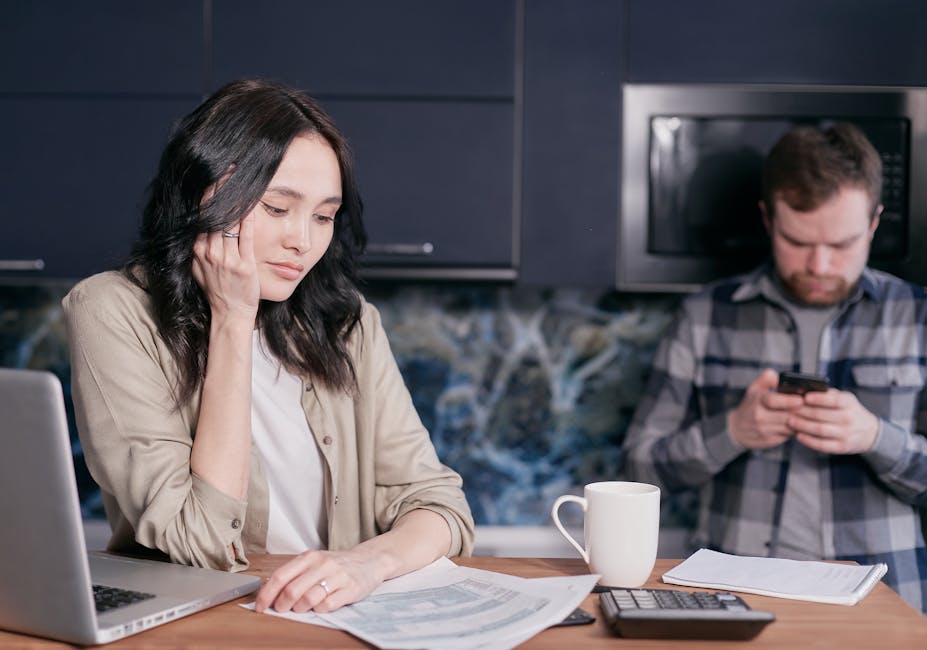
Hmm…” [Laughter] Why? Because of distance, isn’t it? When you’re in it, traffic is a different experience. From really high up there, sitting in a hot air balloon, you look down, and you can’t even hear the sounds, looks wonderful traffic, isn’t it? Yes, or no? Participants: Yes. Sadhguru: Because there’s a distance. So, once there’s a distance between you and your mind’s activity, the mind is not a problem – the mind is a miracle, it is not a problem. And anyway, if thoughts are going continuously, if you’re having mental diarrhea, [Laughter] you ate some bad food, isn’t it? Yes? If you’re having physical diarrhea, you ate some bad food, isn’t it? If you’re having mental diarrhea, you consumed something wrong. What this wrong thing could be is, the moment you identify yourself with something that you’re not, then you’re finished – your mind is a continuous run. There is no other way. Do what you want, and try as hard as you want, it is not going to stop. If you do not identify yourself with anything that you are not, you know how to be with everything, you know how to use everything, but you’re not identified with it, then you will see, if you sit here, simply, the mind will be like this; [Gestures] if you want to use it you can use it, otherwise, it’ll be like this. Right now your hands are like this; oh, you’re holding it tied up because it’ll go all over, is it? No, you can keep it like this. You can keep it like this, you can keep it like this. [Gestures] When you want to use it, you can use it. So, it’s a useful instrument. Suppose your hands become like this. [Gestures] You know, some people have become like this? Yes, or no? [Gestures] If it becomes like this, you will become ridiculous, isn’t it? If it happens to your mind, also you’re equally ridiculous. It is just that you are living in the comfort that nobody else can see it. But people can see it; if they watch you closely enough, they can see it, isn’t it? And whether they can see it or not, that’s not the point; the point is, the most important faculty of your life is out of control. It doesn’t matter whether they can see it or not, that’s not the issue; the issue is, the most important faculty in your life is out of control, doing its rubbish all the time, not doing what you want it to do. So, if you have to be freed from this ailment, you should stop eating bad food. Wrong food, or bad food means, you are identifying yourself with things that you’re not. If you sit here, if you’re not identified with this, and with this, [Gestures] then you will see, everything is just fine. Then your mind will do what you want it to do; otherwise, it’ll simply hang there, and that’s how it should be. The mind should not be telling its own stories all the time; it should tell the story that you want it to tell, isn’t it? Otherwise, it’s quite a nuisance.
As found on YouTubeBrain Booster | Blue Heron Health News ⇝ I was losing my memory, focus – and mind! And then… I got it all back again. Case study: Brian Thompson There’s nothing more terrifying than watching your brain health fail. You can feel it… but you can’t stop it. Over and over I asked myself, where is this going to end? What am I going to end up like? And nobody could tell me. Doesn’t matter now. I’m over it. Completely well. This is how I did it!

 This will get your body back into its regular rhythm of sleep and wake cycles,
therefore no longer causing sleep disturbance. FIVE. You always feel drained. Despite getting enough sleep and eating well,
do you constantly feel exhausted or drained? According to Healthline, mental exhaustion
can set in when you are under long-term stress and this type of exhaustion can make it feel
like you are trying to move up a mountain. More than just feeling tired, when you are this
drained and constantly exhausted, you might struggle to get anything done. Healthline
suggests practicing gratitude, relaxation, and yoga, as well as talking to a mental
health professional to provide medication for you if it’s needed. Treatment plans will
look different for everyone, but regardless, there is a way that will work best for you to help
pull yourself out of this state of exhaustion. SIX. Your anxiety seems to be increasing. Do you wake up in the morning with a crushing
sense of anxiety that stays with you all day? Does this anxiety cast a cloud over your
daily activities? Worsening anxiety can often coincide with worsening mental health.
Anxiety affects us all, whether or not you happen to suffer from a particular anxiety
disorder. It’s important to monitor your anxiety levels because a noticeable change
can tell you a lot about your mental health. Anxiety is a response to stress and it can cause
a variety of psychological and physical symptoms. When you feel overly anxious, you might
notice that your heart rate speeds up and your breathing rate increases, and
you might experience a bout of nausea SEVEN. You feel mentally
and emotionally scattered. Do you feel like there are so many things
happening around you, but you can’t focus on any of them? If so, you’re not alone. From
time to time, it’s normal to feel this way, especially when you are going through
higher amounts of stress. However, if you are feeling scattered and like things are
spinning out of control, this could be a sign that your mental health is under strain. According to
Psychologist Rick Hanson from Psychology Today, you probably feel scattered because you are
struggling to find your center. This means that in order for your brain to feel more organized, you
need to feel at peace within yourself. Practicing mindfulness, such as yoga and meditation, are
great places to start on the road to inner peace. EIGHT. You can’t seem to pay attention. Do you have a harder time
focusing and staying on task? When you’re reading, is it hard to comprehend?
Do you have to reread the same passage over and over again? Though it could relate to
potential psychological disorders such as ADHD, depression, or anxiety, it is also likely that
a lack of focus can be due to stress or poor self-care. It can be frustrating to start losing
focus so frequently and those feelings are valid and normal. Remember to take care of yourself
and, as you recover, know that help is available. NINE. You might be struggling
with your impulse control. Are you acting more on impulse? Are you
possibly indulging in things you shouldn’t? Whether it’s retail therapy, or binging all of
your shows, or playing video games for hours, when you act more on impulse like this, it
can signify worsening mental health. You might pick up some unhealthy habits
as a way to cope with life stress, fulfill yourself, or distract yourself
from a major issue going on in your life. Journaling, mindfulness, and therapy are great
ways to start uncovering some of these issues! TEN. You are struggling to feel grounded. Similar to feeling centered, when you
are grounded, you are feeling confident and balanced within yourself. According to Irene
Langeveld, an energy worker, and meditation coach, grounding starts with the root chakra at the
base of the spine, known to help you feel secure. Activities that connect your body with
the world around you– such as hiking, meditating, or walking outside –are all great
ways to help you find your sense of grounding! Can you relate to any of the points made in
this video? Do you think your mental health could be slipping? If so, know that
there is help you can reach out to. You can talk to a trusted friend, family member,
or a mental health therapist for support. Please like and share this video if it helps
you and you think it can help someone else, too! The studies and references used are listed
in the description below. Don’t forget to hit the subscribe button for more Psych2Go videos.
Thank you for watching! We’ll see you next time! Video by Psych2go..As found on YouTubeAnxiety disorders, phobias, and chronic panic attacks affect millions of people all over the world. Often, treatment consists of medications used to reduce anxiety, but these medications don’t work for everyone. Many people are too afraid to explore the real reason why they have anxiety or they’re too embarrassed to seek medical attention. Instead, they suffer for years struggling to learn how to cope with this condition, alone. More often than not this results in the person avoiding many of the places and activities they once loved because they’re so afraid they’ll have a panic attack in public. If you’re tired of trying new medications that don’t work or you’re looking for an all-natural approach to anxiety treatment, the 60 Second Panic Solution program can help.
This will get your body back into its regular rhythm of sleep and wake cycles,
therefore no longer causing sleep disturbance. FIVE. You always feel drained. Despite getting enough sleep and eating well,
do you constantly feel exhausted or drained? According to Healthline, mental exhaustion
can set in when you are under long-term stress and this type of exhaustion can make it feel
like you are trying to move up a mountain. More than just feeling tired, when you are this
drained and constantly exhausted, you might struggle to get anything done. Healthline
suggests practicing gratitude, relaxation, and yoga, as well as talking to a mental
health professional to provide medication for you if it’s needed. Treatment plans will
look different for everyone, but regardless, there is a way that will work best for you to help
pull yourself out of this state of exhaustion. SIX. Your anxiety seems to be increasing. Do you wake up in the morning with a crushing
sense of anxiety that stays with you all day? Does this anxiety cast a cloud over your
daily activities? Worsening anxiety can often coincide with worsening mental health.
Anxiety affects us all, whether or not you happen to suffer from a particular anxiety
disorder. It’s important to monitor your anxiety levels because a noticeable change
can tell you a lot about your mental health. Anxiety is a response to stress and it can cause
a variety of psychological and physical symptoms. When you feel overly anxious, you might
notice that your heart rate speeds up and your breathing rate increases, and
you might experience a bout of nausea SEVEN. You feel mentally
and emotionally scattered. Do you feel like there are so many things
happening around you, but you can’t focus on any of them? If so, you’re not alone. From
time to time, it’s normal to feel this way, especially when you are going through
higher amounts of stress. However, if you are feeling scattered and like things are
spinning out of control, this could be a sign that your mental health is under strain. According to
Psychologist Rick Hanson from Psychology Today, you probably feel scattered because you are
struggling to find your center. This means that in order for your brain to feel more organized, you
need to feel at peace within yourself. Practicing mindfulness, such as yoga and meditation, are
great places to start on the road to inner peace. EIGHT. You can’t seem to pay attention. Do you have a harder time
focusing and staying on task? When you’re reading, is it hard to comprehend?
Do you have to reread the same passage over and over again? Though it could relate to
potential psychological disorders such as ADHD, depression, or anxiety, it is also likely that
a lack of focus can be due to stress or poor self-care. It can be frustrating to start losing
focus so frequently and those feelings are valid and normal. Remember to take care of yourself
and, as you recover, know that help is available. NINE. You might be struggling
with your impulse control. Are you acting more on impulse? Are you
possibly indulging in things you shouldn’t? Whether it’s retail therapy, or binging all of
your shows, or playing video games for hours, when you act more on impulse like this, it
can signify worsening mental health. You might pick up some unhealthy habits
as a way to cope with life stress, fulfill yourself, or distract yourself
from a major issue going on in your life. Journaling, mindfulness, and therapy are great
ways to start uncovering some of these issues! TEN. You are struggling to feel grounded. Similar to feeling centered, when you
are grounded, you are feeling confident and balanced within yourself. According to Irene
Langeveld, an energy worker, and meditation coach, grounding starts with the root chakra at the
base of the spine, known to help you feel secure. Activities that connect your body with
the world around you– such as hiking, meditating, or walking outside –are all great
ways to help you find your sense of grounding! Can you relate to any of the points made in
this video? Do you think your mental health could be slipping? If so, know that
there is help you can reach out to. You can talk to a trusted friend, family member,
or a mental health therapist for support. Please like and share this video if it helps
you and you think it can help someone else, too! The studies and references used are listed
in the description below. Don’t forget to hit the subscribe button for more Psych2Go videos.
Thank you for watching! We’ll see you next time! Video by Psych2go..As found on YouTubeAnxiety disorders, phobias, and chronic panic attacks affect millions of people all over the world. Often, treatment consists of medications used to reduce anxiety, but these medications don’t work for everyone. Many people are too afraid to explore the real reason why they have anxiety or they’re too embarrassed to seek medical attention. Instead, they suffer for years struggling to learn how to cope with this condition, alone. More often than not this results in the person avoiding many of the places and activities they once loved because they’re so afraid they’ll have a panic attack in public. If you’re tired of trying new medications that don’t work or you’re looking for an all-natural approach to anxiety treatment, the 60 Second Panic Solution program can help.

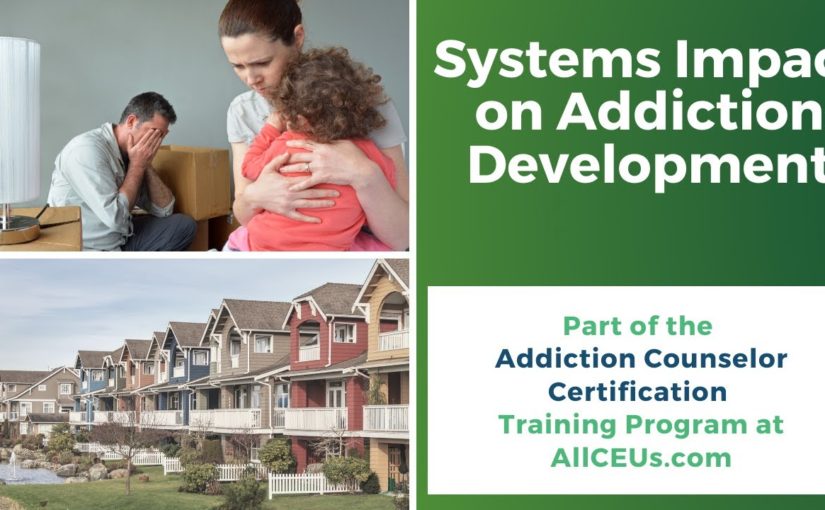
 Is gonna pick up if you are in a household where you know you’re in college and
you’ve got four other roommates and all of your your other roommates tend to be
negative and naysayers you’re either probably going to move or you may that
might start wearing off on you a little bit likewise if they are you know all
kinds of go-getters that can wear off on you too so you know there’s going to be
an impact risk factor is peer and family reinforcement of negative or unhealthy
norms and expectations so if your family says you know people suck they’re
always going to take advantage of you what are you going to take away from
that and is that going to contribute to you probably having difficulties with
trusting and maybe developing depression possibly so we want to look at what kind
of messages is the peer group or family sending to the individual that may
contribute to the development of mood or anxiety disorders early sexual activity
among peers could communicate that well this is the norm so everybody’s doing it
ties to deviant peers and gang involvement you know especially at that
particular group there’s a lot of pressure to conform or there’s a
negative consequences family members who don’t spend much time together and this
could be because parents work a lot this could be because everybody’s you know
involved in all kinds of other stuff but they found that
when families are disengaged the parents tend to miss out on subtle cues when
families are disengaged even if they don’t have children in the mix that
there tends to be a weakening of those bonds supportive bonds so people
are at higher risk for development of depression and anxiety because they
don’t have that you know everybody’s behind me sort of feeling parents who
have trouble keeping track of youth can indicate that the youth may be at risk
for developing substance or more mood disorders lack of clear rules and
consequences you think about even just being at work when there’s a lack of
clear rules and consequences you don’t exactly know what you’re supposed to do
I know for me that creates doodles of anxiety I like manuals and to date
pretty much every job I’ve ever taken I’ve walked in and there hasn’t been a
manual and I’ve been like okay there must be a manual written and that’s been
my first thing now I’m kind of on the structured side so I don’t expect
everybody is that way but most of us tend to experience a little bit of
anxiety about failure about acceptance if we don’t know what’s expected so it’s
important whether it’s a family or a job situation to make sure there’s clear
rules and consequences you know what’s expected and what’s going to happen if
you mess up or if you don’t meet this expectation there also needs to be
consistent expectations and limits you know when people especially children but
a lot of us tested our limits when we were kids and even as adults you know I
know you know going back to working in organizations I would have staff who
would test limits and see how long they could go without turning in a progress
note before I’d be knocking on their door going paperwork it’s natural for
people to kind of test limits especially with stuff they don’t want to do stuff
that’s not rewarding family conflict and abuse can cause a high risk of depression
and anxiety whether adults or children I mean if there’s a
a lot of conflict and chaos it’s exhausting and it can cause a lot of
dysphoric emotions and loss of employment that’s kind of
self-explanatory protective factors close family relationships so as
clinicians we can encourage people to identify who they consider their family
it may not be their blood relatives or their family who are there for them
who can they call it 2:00 in the morning and how can they nurture those
relationships encourage people to develop relationships with peers that
are involved in pro-social activities like hiking or volunteering in the
community consistency of parenting is important in terms of producing children
who are who are stronger healthier more resilient encouraging education and
parents who are actively involved can help prevent future depression because
they’re creating children who can join the workforce and have that
individual capital to prevent depression and anxiety and cope with stress
positively and this is a family protective factor and a peer for
protective factor why because we learn from observation so if our peers cope
with stress positively by prayer or exercise or whatever it is they do and
our family has other positive ways of coping with stress and we’re going to
have a greater venue of stuff to choose from supportive relationships with
caring for adults beyond the immediate family is encouraged so we want
children to grow up being able to interact with teachers coaches with
you know Scout leaders whomever and start seeing that people outside of the
nuclear family are trustworthy sharing and family responsibilities including
chores and decision making and that’s true for children teenagers and even
adults you know if you’re living in the same household it
important that everybody feels like they have a say in what’s happening
and participates in the upkeep of the family environment and family
members are nurturing and support each other and this is one where I tend to
stop and I do a love languages little mini class to help people remember that
we don’t always experience nurturance in the same way so understanding one
another’s love language is really important to be able to nurture in a
way that’s meaningful to that other person peer and family interventions are
designed to identify norms goals and expectations in the family foster family
problem-solving skills so there’s not just one person always fixing it develop
structure and consistency within the family unit promote healthy
relationships and engage peers and family of choice in the recovery process
so if somebody’s already depressed we need to be able to hopefully engage
everybody that’s involved in this person’s immediate environment in
helping them move towards recovery and you know preferably not dragging them
back down so we want to engage them and make sure that people have a supportive
others school and work risk factors lack of clear expectations both academic or
performance-wise and behavioral lack of commitment or sense of belonging at
school or at work if you just kind of go and you feel like a number you punch in
punch out that may not make you feel appreciated which can contribute
to depression and you know just bad feelings high numbers of students
failing academically at school and work translates to high amounts of
turnover if you never know who’s going to get laid off it increases stress and
anxiety and parents and community members who are not actively involved
in keeping kids in school and helping make sure that the workforce workforce
is strong but we want to make sure that people have access to how
when it’s needed we want to make sure that people have access to tutoring in
school if they need it to prevent failing school they have access to
transportation to get to work now those are things those are meta concepts that
are more on the community level but it’s important that as a community member you
know we look at different things that we may be able to participate in advocacy
and say you know it’s really important to get a bus system going I live out
about 30 miles east of Nashville and we must have the
the train that goes from my city out to Nashville so people have
access to more jobs so that was important for us to get past the City
Commission protective factors school and work positive attitudes gotta find a
reason why you’re doing this you know and sometimes it’s hard to find a reason
for algebra but we need to help kids find a reason for that we need to help
adults find a reason for why they’re going to work why are they doing what
they’re doing regular attendance shows you know it is associated with higher
mood less less risk of mood or addictive disorders because you’re able to get up
and do it and interface with people and get that social support hopefully from
your colleague’s high expectations are communicated effectively in setting
and positive social development is encouraged you know whether it’s at work
or at school, there are goals there are things you’ve got to accomplish there
are performance objectives but we also want to encourage morale and positive
social bonding whatever the setting having a positive instructional climate
again whether at work or school, I know we learn things when we’re on the
job we learn things and I don’t want people to feel like they’re having
difficulty like they’re stupid I want people to feel like anything that we
teach them as a challenge and something that may be beneficial down the road
leadership and decision-making opportunities are really important again
for students or employees to prevent burnout keep morale up reduce
anxiety and increase a sense of personal empower
and connection and active involvement for everybody is fostered and the school or
organization is responsive to the student’s needs making sure that in
school in the case of school they have access to tutoring resources it’s a safe
environment for them to be in and the children that are going to that school
have enough food in their bellies you know they can’t learn if they’re
hungry all the time workplace is a little bit different but we still need
to be responsive to people’s needs in terms of you know family requirements
whether they need to if they’re going back to school
shifting schedules a little bit we need to try to work with people instead of
being completely rigid and it’s my way or the highway when possible to
promote the best mental health characteristics of settings in which
relationships are often associated with the development of mood disorders and
addictive behaviors so we want to look at the characteristics of schools that are
they safe are they positive environments are they cheering squads or are they
places where people know they’re gonna go and get thrown under the bus
same thing with workplaces you know when you walk into a place you get most of
we get a sense and you’re either like oh this is a cool place to work or oh I
can’t wait til I can get out of here you know we want to go toward the
other end and neighborhoods when you go into a neighborhood – people take care
of their environment do they or do they have trash strewn all over their lawn
all of these things communicate how people feel about their environment and
generally how they feel about themselves and whether they have the energy to take
care of stuff or they just feel completely disenfranchised and don’t
care more about community risk factors no sense of
connection to the community neighborhood disorganization rapid changes high
unemployment a lack of strong social institutions lack of monitoring of youths
activities imbalanced media portrayals of safety health and appropriate
behavior misleading advertising and alcohol or drugs readily available
a lot of stuff we do we’re not going to be able to affect on the community level
so much but we’re gonna hit them real quick we want to improve the climate
process and policies within community schools and workplaces to make it safe and
promote positive health behaviors prevention strategies are designed to
reduce social isolation reduce and address stigma increase awareness of
local recovery models you know who’s out there that has recovered and can serve
as a role model improve economic and housing opportunities so people have a
house a safe roof over their head and they can you know earn money and feel
good about themselves increasing the accuracy and improving the positivity of
media messages and increasing physical and financial ability availability of
recovery so like I said I live in a little town so it’s nice that we have
a community mental health center here so people don’t have to rely on going into
Nashville but also making sure that services are financially available
whether you have a free clinic once a month or you know make sure you’ll you
take Medicaid but there are still a lot of people who have no insurance so where do
they go the socio-ecological model identifies
how the end the individual impacts and is impacted by not only his own
characteristics but also those of family peers community and culture prevention
takes the form of preventing the problem preventing the worsening of the problem and
preventing associated fallout like I said as clinicians a lot of what we’re
going to do is target the individual providing them with resiliency skills to deal
with some of this adversity that might be around them and to help them sort
through some of those media messages and go yeah
that’s not even true you know if I drink this vodka I’m not suddenly going to
have 14 supermodels hanging on me or whatever it is that’s being communicated
so encouraging people to be informed and Wylie consumers any change in the
the system will affect other parts of this system so if it’s a
positive change is probably going to have positive changes negative has
negative changes addressing addictive and mood disorder behaviors require a
the multi-pronged approach we need to look at the individual and you know provide
provide as many skills as possible there because that’s where we’re going to have
a lot of our impact especially in prevention but we also need to
realize that this person resides within a family you know whether they live
alone which sometimes is less problematic or they live in a household
with other people, we need to make sure that where they lay their heads at night
where they spend their non-working hours feel safe and is conducive to recovery
where they work or go to school also needs to feel safe and be conducive to
recovery and that’s part of the community so we need to kind of look at
these areas and if they aren’t safe or they don’t feel safe or aren’t conducive
to recovery, we need to help people how to figure out how they can fix that or
address it like I said they may not be able to move so what can you do to set
some boundaries to create as much safety as you can how can you do this and there
are a lot of different techniques that I’m sure you already have that you used
to help people but it’s important again not to just focus on the individual
because they don’t live in a bubble we need to look at everything right and are
Are there any questions now we have or I have added a Wednesday
class, so you don’t don’t have to come but if you have unlimited
membership same time same station Wednesday so Tuesday Wednesday and
Thursday we have a class from noon. CST 1 p.m. EST 2 for an hour all righty I will talk to y’all maybe
tomorrow maybe on Thursday have a great day if you enjoy this podcast please like
and subscribe either in your podcast player or on YouTube you can attend and
participate in our live webinars with Doctor Snipes by subscribing at all CEUs
comm slash counselor toolbox this episode has been brought to you in part
by all CEUs com providing 24/7 multimedia continuing education and pre
certification training to counselors therapists and nurses since 2006 use
coupon code consular toolbox to get a 20% discount off your order this month.
Is gonna pick up if you are in a household where you know you’re in college and
you’ve got four other roommates and all of your your other roommates tend to be
negative and naysayers you’re either probably going to move or you may that
might start wearing off on you a little bit likewise if they are you know all
kinds of go-getters that can wear off on you too so you know there’s going to be
an impact risk factor is peer and family reinforcement of negative or unhealthy
norms and expectations so if your family says you know people suck they’re
always going to take advantage of you what are you going to take away from
that and is that going to contribute to you probably having difficulties with
trusting and maybe developing depression possibly so we want to look at what kind
of messages is the peer group or family sending to the individual that may
contribute to the development of mood or anxiety disorders early sexual activity
among peers could communicate that well this is the norm so everybody’s doing it
ties to deviant peers and gang involvement you know especially at that
particular group there’s a lot of pressure to conform or there’s a
negative consequences family members who don’t spend much time together and this
could be because parents work a lot this could be because everybody’s you know
involved in all kinds of other stuff but they found that
when families are disengaged the parents tend to miss out on subtle cues when
families are disengaged even if they don’t have children in the mix that
there tends to be a weakening of those bonds supportive bonds so people
are at higher risk for development of depression and anxiety because they
don’t have that you know everybody’s behind me sort of feeling parents who
have trouble keeping track of youth can indicate that the youth may be at risk
for developing substance or more mood disorders lack of clear rules and
consequences you think about even just being at work when there’s a lack of
clear rules and consequences you don’t exactly know what you’re supposed to do
I know for me that creates doodles of anxiety I like manuals and to date
pretty much every job I’ve ever taken I’ve walked in and there hasn’t been a
manual and I’ve been like okay there must be a manual written and that’s been
my first thing now I’m kind of on the structured side so I don’t expect
everybody is that way but most of us tend to experience a little bit of
anxiety about failure about acceptance if we don’t know what’s expected so it’s
important whether it’s a family or a job situation to make sure there’s clear
rules and consequences you know what’s expected and what’s going to happen if
you mess up or if you don’t meet this expectation there also needs to be
consistent expectations and limits you know when people especially children but
a lot of us tested our limits when we were kids and even as adults you know I
know you know going back to working in organizations I would have staff who
would test limits and see how long they could go without turning in a progress
note before I’d be knocking on their door going paperwork it’s natural for
people to kind of test limits especially with stuff they don’t want to do stuff
that’s not rewarding family conflict and abuse can cause a high risk of depression
and anxiety whether adults or children I mean if there’s a
a lot of conflict and chaos it’s exhausting and it can cause a lot of
dysphoric emotions and loss of employment that’s kind of
self-explanatory protective factors close family relationships so as
clinicians we can encourage people to identify who they consider their family
it may not be their blood relatives or their family who are there for them
who can they call it 2:00 in the morning and how can they nurture those
relationships encourage people to develop relationships with peers that
are involved in pro-social activities like hiking or volunteering in the
community consistency of parenting is important in terms of producing children
who are who are stronger healthier more resilient encouraging education and
parents who are actively involved can help prevent future depression because
they’re creating children who can join the workforce and have that
individual capital to prevent depression and anxiety and cope with stress
positively and this is a family protective factor and a peer for
protective factor why because we learn from observation so if our peers cope
with stress positively by prayer or exercise or whatever it is they do and
our family has other positive ways of coping with stress and we’re going to
have a greater venue of stuff to choose from supportive relationships with
caring for adults beyond the immediate family is encouraged so we want
children to grow up being able to interact with teachers coaches with
you know Scout leaders whomever and start seeing that people outside of the
nuclear family are trustworthy sharing and family responsibilities including
chores and decision making and that’s true for children teenagers and even
adults you know if you’re living in the same household it
important that everybody feels like they have a say in what’s happening
and participates in the upkeep of the family environment and family
members are nurturing and support each other and this is one where I tend to
stop and I do a love languages little mini class to help people remember that
we don’t always experience nurturance in the same way so understanding one
another’s love language is really important to be able to nurture in a
way that’s meaningful to that other person peer and family interventions are
designed to identify norms goals and expectations in the family foster family
problem-solving skills so there’s not just one person always fixing it develop
structure and consistency within the family unit promote healthy
relationships and engage peers and family of choice in the recovery process
so if somebody’s already depressed we need to be able to hopefully engage
everybody that’s involved in this person’s immediate environment in
helping them move towards recovery and you know preferably not dragging them
back down so we want to engage them and make sure that people have a supportive
others school and work risk factors lack of clear expectations both academic or
performance-wise and behavioral lack of commitment or sense of belonging at
school or at work if you just kind of go and you feel like a number you punch in
punch out that may not make you feel appreciated which can contribute
to depression and you know just bad feelings high numbers of students
failing academically at school and work translates to high amounts of
turnover if you never know who’s going to get laid off it increases stress and
anxiety and parents and community members who are not actively involved
in keeping kids in school and helping make sure that the workforce workforce
is strong but we want to make sure that people have access to how
when it’s needed we want to make sure that people have access to tutoring in
school if they need it to prevent failing school they have access to
transportation to get to work now those are things those are meta concepts that
are more on the community level but it’s important that as a community member you
know we look at different things that we may be able to participate in advocacy
and say you know it’s really important to get a bus system going I live out
about 30 miles east of Nashville and we must have the
the train that goes from my city out to Nashville so people have
access to more jobs so that was important for us to get past the City
Commission protective factors school and work positive attitudes gotta find a
reason why you’re doing this you know and sometimes it’s hard to find a reason
for algebra but we need to help kids find a reason for that we need to help
adults find a reason for why they’re going to work why are they doing what
they’re doing regular attendance shows you know it is associated with higher
mood less less risk of mood or addictive disorders because you’re able to get up
and do it and interface with people and get that social support hopefully from
your colleague’s high expectations are communicated effectively in setting
and positive social development is encouraged you know whether it’s at work
or at school, there are goals there are things you’ve got to accomplish there
are performance objectives but we also want to encourage morale and positive
social bonding whatever the setting having a positive instructional climate
again whether at work or school, I know we learn things when we’re on the
job we learn things and I don’t want people to feel like they’re having
difficulty like they’re stupid I want people to feel like anything that we
teach them as a challenge and something that may be beneficial down the road
leadership and decision-making opportunities are really important again
for students or employees to prevent burnout keep morale up reduce
anxiety and increase a sense of personal empower
and connection and active involvement for everybody is fostered and the school or
organization is responsive to the student’s needs making sure that in
school in the case of school they have access to tutoring resources it’s a safe
environment for them to be in and the children that are going to that school
have enough food in their bellies you know they can’t learn if they’re
hungry all the time workplace is a little bit different but we still need
to be responsive to people’s needs in terms of you know family requirements
whether they need to if they’re going back to school
shifting schedules a little bit we need to try to work with people instead of
being completely rigid and it’s my way or the highway when possible to
promote the best mental health characteristics of settings in which
relationships are often associated with the development of mood disorders and
addictive behaviors so we want to look at the characteristics of schools that are
they safe are they positive environments are they cheering squads or are they
places where people know they’re gonna go and get thrown under the bus
same thing with workplaces you know when you walk into a place you get most of
we get a sense and you’re either like oh this is a cool place to work or oh I
can’t wait til I can get out of here you know we want to go toward the
other end and neighborhoods when you go into a neighborhood – people take care
of their environment do they or do they have trash strewn all over their lawn
all of these things communicate how people feel about their environment and
generally how they feel about themselves and whether they have the energy to take
care of stuff or they just feel completely disenfranchised and don’t
care more about community risk factors no sense of
connection to the community neighborhood disorganization rapid changes high
unemployment a lack of strong social institutions lack of monitoring of youths
activities imbalanced media portrayals of safety health and appropriate
behavior misleading advertising and alcohol or drugs readily available
a lot of stuff we do we’re not going to be able to affect on the community level
so much but we’re gonna hit them real quick we want to improve the climate
process and policies within community schools and workplaces to make it safe and
promote positive health behaviors prevention strategies are designed to
reduce social isolation reduce and address stigma increase awareness of
local recovery models you know who’s out there that has recovered and can serve
as a role model improve economic and housing opportunities so people have a
house a safe roof over their head and they can you know earn money and feel
good about themselves increasing the accuracy and improving the positivity of
media messages and increasing physical and financial ability availability of
recovery so like I said I live in a little town so it’s nice that we have
a community mental health center here so people don’t have to rely on going into
Nashville but also making sure that services are financially available
whether you have a free clinic once a month or you know make sure you’ll you
take Medicaid but there are still a lot of people who have no insurance so where do
they go the socio-ecological model identifies
how the end the individual impacts and is impacted by not only his own
characteristics but also those of family peers community and culture prevention
takes the form of preventing the problem preventing the worsening of the problem and
preventing associated fallout like I said as clinicians a lot of what we’re
going to do is target the individual providing them with resiliency skills to deal
with some of this adversity that might be around them and to help them sort
through some of those media messages and go yeah
that’s not even true you know if I drink this vodka I’m not suddenly going to
have 14 supermodels hanging on me or whatever it is that’s being communicated
so encouraging people to be informed and Wylie consumers any change in the
the system will affect other parts of this system so if it’s a
positive change is probably going to have positive changes negative has
negative changes addressing addictive and mood disorder behaviors require a
the multi-pronged approach we need to look at the individual and you know provide
provide as many skills as possible there because that’s where we’re going to have
a lot of our impact especially in prevention but we also need to
realize that this person resides within a family you know whether they live
alone which sometimes is less problematic or they live in a household
with other people, we need to make sure that where they lay their heads at night
where they spend their non-working hours feel safe and is conducive to recovery
where they work or go to school also needs to feel safe and be conducive to
recovery and that’s part of the community so we need to kind of look at
these areas and if they aren’t safe or they don’t feel safe or aren’t conducive
to recovery, we need to help people how to figure out how they can fix that or
address it like I said they may not be able to move so what can you do to set
some boundaries to create as much safety as you can how can you do this and there
are a lot of different techniques that I’m sure you already have that you used
to help people but it’s important again not to just focus on the individual
because they don’t live in a bubble we need to look at everything right and are
Are there any questions now we have or I have added a Wednesday
class, so you don’t don’t have to come but if you have unlimited
membership same time same station Wednesday so Tuesday Wednesday and
Thursday we have a class from noon. CST 1 p.m. EST 2 for an hour all righty I will talk to y’all maybe
tomorrow maybe on Thursday have a great day if you enjoy this podcast please like
and subscribe either in your podcast player or on YouTube you can attend and
participate in our live webinars with Doctor Snipes by subscribing at all CEUs
comm slash counselor toolbox this episode has been brought to you in part
by all CEUs com providing 24/7 multimedia continuing education and pre
certification training to counselors therapists and nurses since 2006 use
coupon code consular toolbox to get a 20% discount off your order this month.


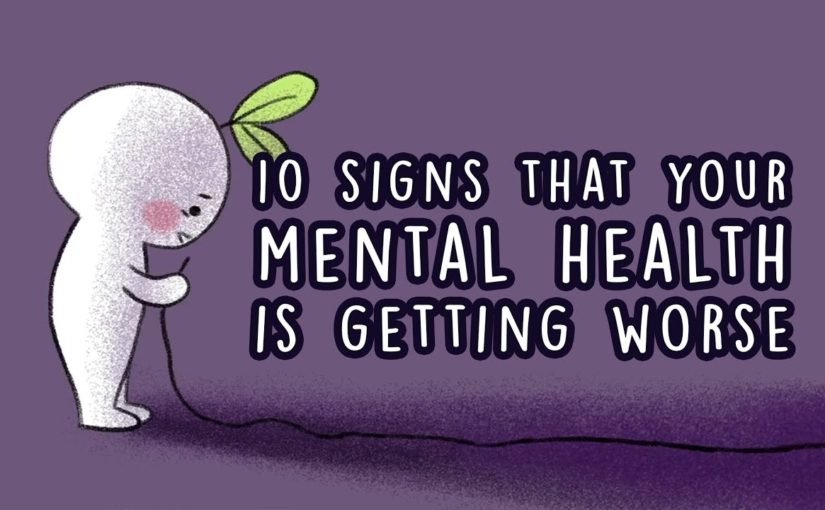
 Do you wake up in the morning with a crushing sense of anxiety that stays with you all day? Does this anxiety cast a cloud over your daily activities? Worsening anxiety can often coincide with worsening mental health. Anxiety affects us all whether or not you happen to suffer from a particular anxiety disorder. It s important to monitor your anxiety levels because a noticeable change can tell you a lot about your mental health. Anxiety is a stress response and it can cause a variety of psychological and physical symptoms. When you feel overly anxious, you might notice that your heart rate speeds up and your breathing rate increases, and you might experience a bout of nausea. Seven. You feel mentally and emotionally shattered. Do you feel like there are so many things happening around you, but you can t focus on any of them? If so, you’re not alone From time to time it s normal to feel this way, especially when you are going through higher amounts of stress. However, if you are feeling scattered and like things are spinning out of control, this could be a sign that your mental health is under strain According to Psychologist, Rick Hanson from Psychology. Today, you probably feel scattered, because you are struggling to find your center. This means that, for your brain to feel more organized, you need to feel at peace within yourself. Practicing mindfulness such as yoga and meditation are great places to start on the road to inner peace. Eight, You can t seem to pay attention. Do you have a harder time focusing and staying on task When you’re reading? Is it hard to comprehend? Do you have to reread the same passage over and over, Though it could relate to potential psychological disorders such as ADHD, depression, or anxiety? It is also likely that a lack of focus can be due to stress or poor self-care. It can be frustrating to start losing focus so frequently and those feelings are valid and normal Remember to take care of yourself and, as you recover know, that help is available NINE. You might be struggling with your impulse control. Are you acting more on impulse? Are you possibly indulging in things you should t, Whether it s retail therapy or binging, all of your shows, or playing video games for hours? When you act more on impulse like this, it can signify worsening mental health. You might pick up some unhealthy habits as a way to cope with life. Stress fulfills you or distracts you from a major issue going on in your life. Journaling, mindfulness, and therapy are great ways to start uncovering some of these issues. Ten, You are struggling to feel, grounded Similar to feeling centered when you are grounded. You are feeling confident and balanced within yourself. According to Irene Langeveld, an energy worker and meditation coach grounding starts with the root chakra at the base of the spine known to help. You feel secure Activities that connect your body with the world around you, such as hiking, meditating, or walking outside, are all great ways to help. You find your sense of grounding. Can you relate to any of the points made in this video? Do you think your mental health could be slipping If so know that there is help you can reach out to You. Can talk to a trusted friend, family member, or mental health therapist for support? Please like and share this video if it helped you and you think it can help someone else too. The studies and references used are listed in the description below Don t forget to hit the subscribe button for more Psych2Go videos. Thank you for watching. We’ll see you next time, Video by Psych2go.
Do you wake up in the morning with a crushing sense of anxiety that stays with you all day? Does this anxiety cast a cloud over your daily activities? Worsening anxiety can often coincide with worsening mental health. Anxiety affects us all whether or not you happen to suffer from a particular anxiety disorder. It s important to monitor your anxiety levels because a noticeable change can tell you a lot about your mental health. Anxiety is a stress response and it can cause a variety of psychological and physical symptoms. When you feel overly anxious, you might notice that your heart rate speeds up and your breathing rate increases, and you might experience a bout of nausea. Seven. You feel mentally and emotionally shattered. Do you feel like there are so many things happening around you, but you can t focus on any of them? If so, you’re not alone From time to time it s normal to feel this way, especially when you are going through higher amounts of stress. However, if you are feeling scattered and like things are spinning out of control, this could be a sign that your mental health is under strain According to Psychologist, Rick Hanson from Psychology. Today, you probably feel scattered, because you are struggling to find your center. This means that, for your brain to feel more organized, you need to feel at peace within yourself. Practicing mindfulness such as yoga and meditation are great places to start on the road to inner peace. Eight, You can t seem to pay attention. Do you have a harder time focusing and staying on task When you’re reading? Is it hard to comprehend? Do you have to reread the same passage over and over, Though it could relate to potential psychological disorders such as ADHD, depression, or anxiety? It is also likely that a lack of focus can be due to stress or poor self-care. It can be frustrating to start losing focus so frequently and those feelings are valid and normal Remember to take care of yourself and, as you recover know, that help is available NINE. You might be struggling with your impulse control. Are you acting more on impulse? Are you possibly indulging in things you should t, Whether it s retail therapy or binging, all of your shows, or playing video games for hours? When you act more on impulse like this, it can signify worsening mental health. You might pick up some unhealthy habits as a way to cope with life. Stress fulfills you or distracts you from a major issue going on in your life. Journaling, mindfulness, and therapy are great ways to start uncovering some of these issues. Ten, You are struggling to feel, grounded Similar to feeling centered when you are grounded. You are feeling confident and balanced within yourself. According to Irene Langeveld, an energy worker and meditation coach grounding starts with the root chakra at the base of the spine known to help. You feel secure Activities that connect your body with the world around you, such as hiking, meditating, or walking outside, are all great ways to help. You find your sense of grounding. Can you relate to any of the points made in this video? Do you think your mental health could be slipping If so know that there is help you can reach out to You. Can talk to a trusted friend, family member, or mental health therapist for support? Please like and share this video if it helped you and you think it can help someone else too. The studies and references used are listed in the description below Don t forget to hit the subscribe button for more Psych2Go videos. Thank you for watching. We’ll see you next time, Video by Psych2go.





































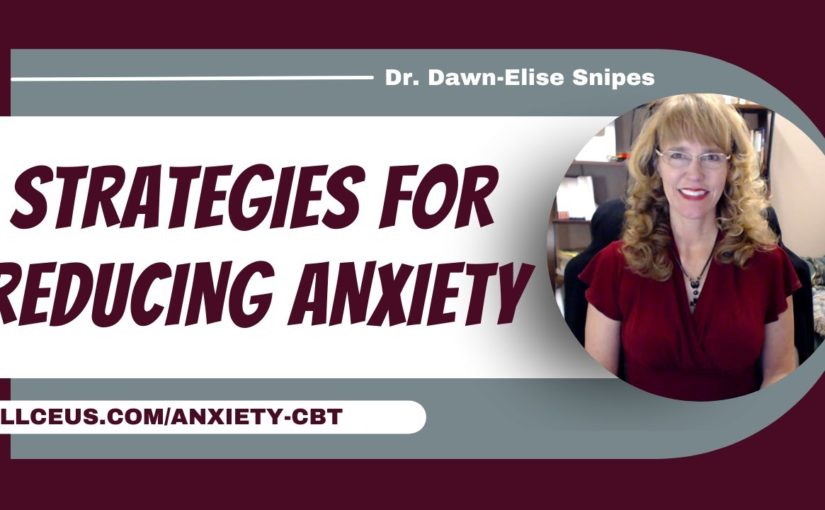
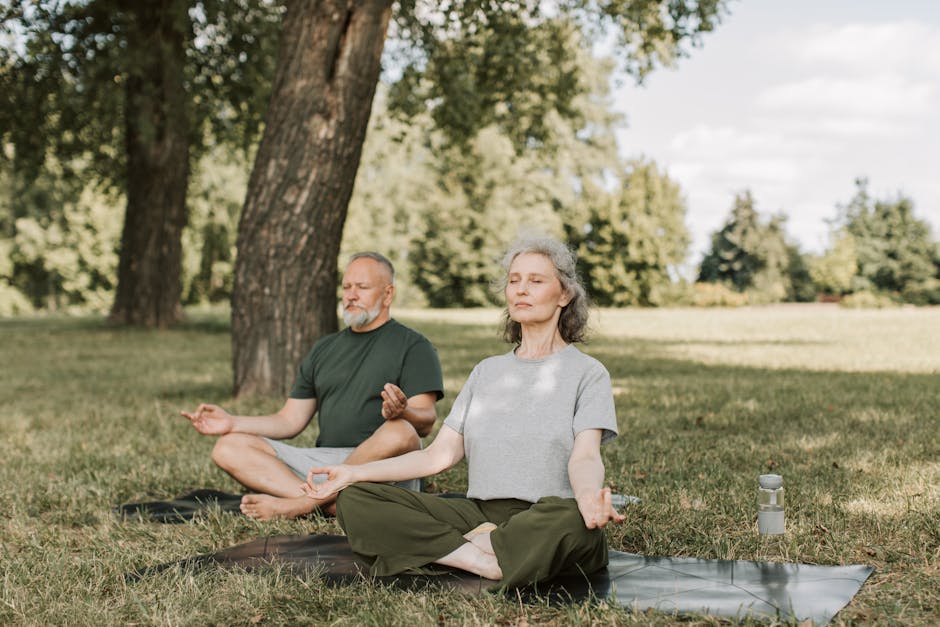 Snipes by subscribing
at all CEUs comm slash counselor toolbox, this episode has been brought to you in part by all
CEUs calmly provide 24/7 multimedia continuing education and pre-certification training to
counselors therapists and nurses since 2006 have used coupon code consular toolbox to get
a 20% discount on your order this month.
Snipes by subscribing
at all CEUs comm slash counselor toolbox, this episode has been brought to you in part by all
CEUs calmly provide 24/7 multimedia continuing education and pre-certification training to
counselors therapists and nurses since 2006 have used coupon code consular toolbox to get
a 20% discount on your order this month.

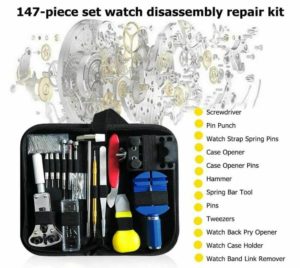



















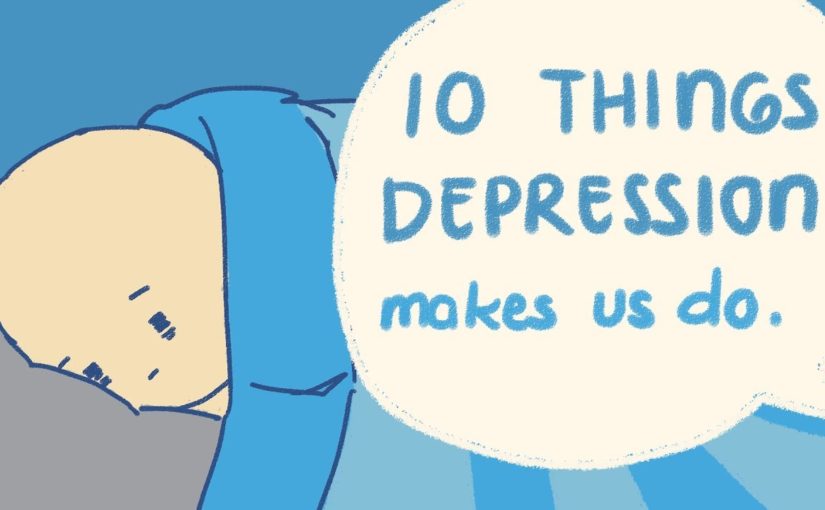
 This slippery slope makes it difficult to
see life under a brighter light. 6. Terrible eating habits. Those with depression will either eat too
much or hardly anything at all. Some of you may find yourself in the kitchen
eating everything in side, trying to eat away the emptiness or sadness you’re feeling while others don’t have an appetite and may even feel disgusted by food. In other cases, some of you may feel so exhausted
that that thought of preparing a meal is overwhelming. 7. Lack of motivation. Depression steals your interests and desires
right from under you. Your favorite pastimes and hobbies no longer
satisfy you, slowly you find yourself feeling dead and numb inside. If you aren’t careful you’ll end up staying
in bed all day. 8. Evading your problems. Depression by itself is overwhelming, you
can feel devastated and out of control most days, so trying to face situations and problems
head-on is difficult enough. Instead you ignore or set the problem aside,
and this in turn can bring trouble because it will continue to pile up. 9. Feeling guilty and feeling self-hatred. If you allow depression to take over your
thoughts, then you’ll most likely feel self-hatred. You’ll continue to talk down to yourself and
this often leads to the development of self-esteem issues along with poor self-image, eventually
you’ll believe you aren’t worth it anymore. Some people with this mental disorder can
even feel guilt by thinking all their problems are their fault. And 10: living in fear. People with depression fear that terrible
things will happen to them. In severe cases, some of you will sabotage a good situation, believing that it will turn bad. Other times individuals will reject opportunities
and stop pursuing their dreams. It’s a twisted way to protect yourself because
this prevents you from living and achieving amazing things. Depression affects us in different ways. The list mentioned in this video contains
some of the common behaviors those with the disorder have. Do you agree with these points? What other behaviors have you noticed? Let us know in the comment section below. <3.
This slippery slope makes it difficult to
see life under a brighter light. 6. Terrible eating habits. Those with depression will either eat too
much or hardly anything at all. Some of you may find yourself in the kitchen
eating everything in side, trying to eat away the emptiness or sadness you’re feeling while others don’t have an appetite and may even feel disgusted by food. In other cases, some of you may feel so exhausted
that that thought of preparing a meal is overwhelming. 7. Lack of motivation. Depression steals your interests and desires
right from under you. Your favorite pastimes and hobbies no longer
satisfy you, slowly you find yourself feeling dead and numb inside. If you aren’t careful you’ll end up staying
in bed all day. 8. Evading your problems. Depression by itself is overwhelming, you
can feel devastated and out of control most days, so trying to face situations and problems
head-on is difficult enough. Instead you ignore or set the problem aside,
and this in turn can bring trouble because it will continue to pile up. 9. Feeling guilty and feeling self-hatred. If you allow depression to take over your
thoughts, then you’ll most likely feel self-hatred. You’ll continue to talk down to yourself and
this often leads to the development of self-esteem issues along with poor self-image, eventually
you’ll believe you aren’t worth it anymore. Some people with this mental disorder can
even feel guilt by thinking all their problems are their fault. And 10: living in fear. People with depression fear that terrible
things will happen to them. In severe cases, some of you will sabotage a good situation, believing that it will turn bad. Other times individuals will reject opportunities
and stop pursuing their dreams. It’s a twisted way to protect yourself because
this prevents you from living and achieving amazing things. Depression affects us in different ways. The list mentioned in this video contains
some of the common behaviors those with the disorder have. Do you agree with these points? What other behaviors have you noticed? Let us know in the comment section below. <3.
 Hmm…” [Laughter] Why? Because of distance, isn’t it? When you’re in it, traffic is a different experience. From really high up there, sitting in a hot air balloon, you look down, and you can’t even hear the sounds, looks wonderful traffic, isn’t it? Yes, or no? Participants: Yes. Sadhguru: Because there’s a distance. So, once there’s a distance between you and your mind’s activity, the mind is not a problem – the mind is a miracle, it is not a problem. And anyway, if thoughts are going continuously, if you’re having mental diarrhea, [Laughter] you ate some bad food, isn’t it? Yes? If you’re having physical diarrhea, you ate some bad food, isn’t it? If you’re having mental diarrhea, you consumed something wrong. What this wrong thing could be is, the moment you identify yourself with something that you’re not, then you’re finished – your mind is a continuous run. There is no other way. Do what you want, and try as hard as you want, it is not going to stop. If you do not identify yourself with anything that you are not, you know how to be with everything, you know how to use everything, but you’re not identified with it, then you will see, if you sit here, simply, the mind will be like this; [Gestures] if you want to use it you can use it, otherwise, it’ll be like this. Right now your hands are like this; oh, you’re holding it tied up because it’ll go all over, is it? No, you can keep it like this. You can keep it like this, you can keep it like this. [Gestures] When you want to use it, you can use it. So, it’s a useful instrument. Suppose your hands become like this. [Gestures] You know, some people have become like this? Yes, or no? [Gestures] If it becomes like this, you will become ridiculous, isn’t it? If it happens to your mind, also you’re equally ridiculous. It is just that you are living in the comfort that nobody else can see it. But people can see it; if they watch you closely enough, they can see it, isn’t it? And whether they can see it or not, that’s not the point; the point is, the most important faculty of your life is out of control. It doesn’t matter whether they can see it or not, that’s not the issue; the issue is, the most important faculty in your life is out of control, doing its rubbish all the time, not doing what you want it to do. So, if you have to be freed from this ailment, you should stop eating bad food. Wrong food, or bad food means, you are identifying yourself with things that you’re not. If you sit here, if you’re not identified with this, and with this, [Gestures] then you will see, everything is just fine. Then your mind will do what you want it to do; otherwise, it’ll simply hang there, and that’s how it should be. The mind should not be telling its own stories all the time; it should tell the story that you want it to tell, isn’t it? Otherwise, it’s quite a nuisance.
Hmm…” [Laughter] Why? Because of distance, isn’t it? When you’re in it, traffic is a different experience. From really high up there, sitting in a hot air balloon, you look down, and you can’t even hear the sounds, looks wonderful traffic, isn’t it? Yes, or no? Participants: Yes. Sadhguru: Because there’s a distance. So, once there’s a distance between you and your mind’s activity, the mind is not a problem – the mind is a miracle, it is not a problem. And anyway, if thoughts are going continuously, if you’re having mental diarrhea, [Laughter] you ate some bad food, isn’t it? Yes? If you’re having physical diarrhea, you ate some bad food, isn’t it? If you’re having mental diarrhea, you consumed something wrong. What this wrong thing could be is, the moment you identify yourself with something that you’re not, then you’re finished – your mind is a continuous run. There is no other way. Do what you want, and try as hard as you want, it is not going to stop. If you do not identify yourself with anything that you are not, you know how to be with everything, you know how to use everything, but you’re not identified with it, then you will see, if you sit here, simply, the mind will be like this; [Gestures] if you want to use it you can use it, otherwise, it’ll be like this. Right now your hands are like this; oh, you’re holding it tied up because it’ll go all over, is it? No, you can keep it like this. You can keep it like this, you can keep it like this. [Gestures] When you want to use it, you can use it. So, it’s a useful instrument. Suppose your hands become like this. [Gestures] You know, some people have become like this? Yes, or no? [Gestures] If it becomes like this, you will become ridiculous, isn’t it? If it happens to your mind, also you’re equally ridiculous. It is just that you are living in the comfort that nobody else can see it. But people can see it; if they watch you closely enough, they can see it, isn’t it? And whether they can see it or not, that’s not the point; the point is, the most important faculty of your life is out of control. It doesn’t matter whether they can see it or not, that’s not the issue; the issue is, the most important faculty in your life is out of control, doing its rubbish all the time, not doing what you want it to do. So, if you have to be freed from this ailment, you should stop eating bad food. Wrong food, or bad food means, you are identifying yourself with things that you’re not. If you sit here, if you’re not identified with this, and with this, [Gestures] then you will see, everything is just fine. Then your mind will do what you want it to do; otherwise, it’ll simply hang there, and that’s how it should be. The mind should not be telling its own stories all the time; it should tell the story that you want it to tell, isn’t it? Otherwise, it’s quite a nuisance.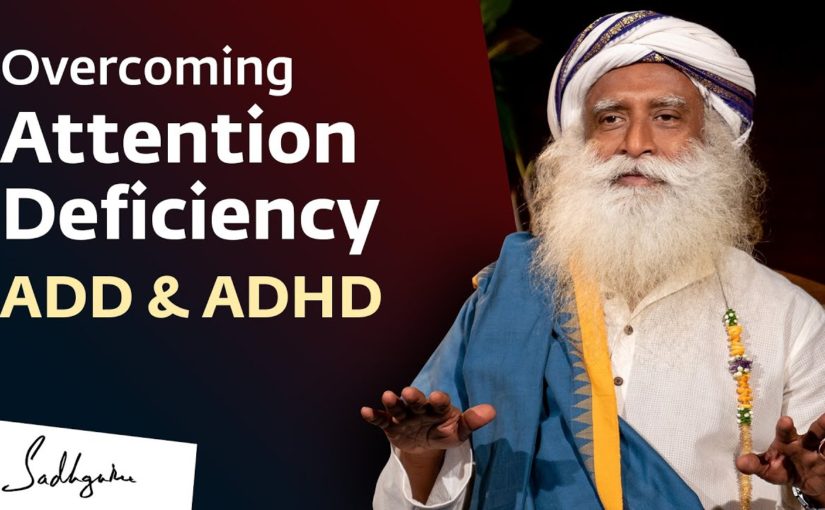

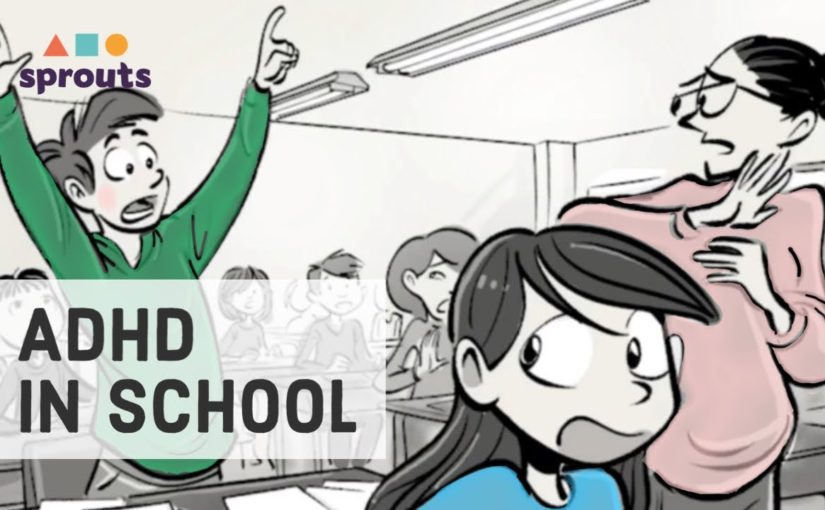
 Others become impatient, give up or distance themselves. after he
is diagnosed and receives support through concrete steps, things begin to
get better: at school, he is seated next to a supportive student in the front row
of the class, he gets a notebook that lists all his assignments to help him
remember and to make homework easier to track he receives it for all subjects
only once a week. to relax he is allowed to use fidget objects during lessons and
take short breaks when needed. after school he practices speaking and
listening routines with the specialist. additionally, his dad bikes with him to
school every morning and in the afternoon he is allowed to play the ball
as long as he wishes. for severe cases of ADHD prescription drugs are often
prescribed. before that happens children like Leo need to undergo a
professional age-appropriate diagnosis by a child psychologist who will try to
look below the surface. ADHD could just be the tip of the
iceberg the root cause might be drama at home, bullying at school, poor sleep or
the wrong diet. Sir Ken Robinson told the story of Gillian Lynne, an 8-year-old
girl that was said to have a learning disorder. she could not concentrate and
never sat still. when she was brought to the specialist who didn’t subscribe any
therapy but instead played music on the radio, the girl started dancing. he then
told her mother: “Gillian isn’t sick, she’s a dancer. take her to a dance school!”
Gillian Lynne later became a famous dancer and then responsible for some of
the most successful musicals in Broadway history. please share your thoughts in
the comments below. if you are hyperactive or if you are diagnosed with
ADHD please tell us about your coping mechanisms so we can learn more about it
from reading your insights. if you want to support our Channel, enabling us
to make more such videos, visit patreon.com/sprouts and check out
what we do.
Others become impatient, give up or distance themselves. after he
is diagnosed and receives support through concrete steps, things begin to
get better: at school, he is seated next to a supportive student in the front row
of the class, he gets a notebook that lists all his assignments to help him
remember and to make homework easier to track he receives it for all subjects
only once a week. to relax he is allowed to use fidget objects during lessons and
take short breaks when needed. after school he practices speaking and
listening routines with the specialist. additionally, his dad bikes with him to
school every morning and in the afternoon he is allowed to play the ball
as long as he wishes. for severe cases of ADHD prescription drugs are often
prescribed. before that happens children like Leo need to undergo a
professional age-appropriate diagnosis by a child psychologist who will try to
look below the surface. ADHD could just be the tip of the
iceberg the root cause might be drama at home, bullying at school, poor sleep or
the wrong diet. Sir Ken Robinson told the story of Gillian Lynne, an 8-year-old
girl that was said to have a learning disorder. she could not concentrate and
never sat still. when she was brought to the specialist who didn’t subscribe any
therapy but instead played music on the radio, the girl started dancing. he then
told her mother: “Gillian isn’t sick, she’s a dancer. take her to a dance school!”
Gillian Lynne later became a famous dancer and then responsible for some of
the most successful musicals in Broadway history. please share your thoughts in
the comments below. if you are hyperactive or if you are diagnosed with
ADHD please tell us about your coping mechanisms so we can learn more about it
from reading your insights. if you want to support our Channel, enabling us
to make more such videos, visit patreon.com/sprouts and check out
what we do.
